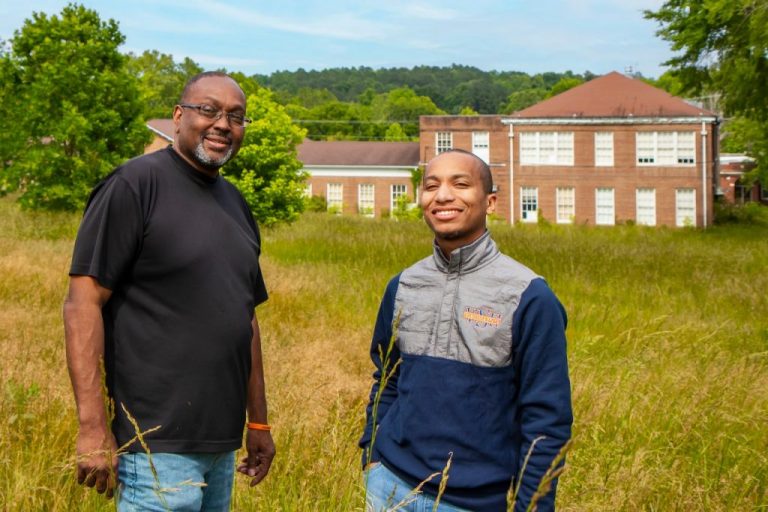There’s no one to greet visitors at St. Paul’s College — just the wind rustling through chest-high grass.
Under fading “no parking” signs, a few security vehicles dot College Drive, their tires flat and rotting away. Stately red brick buildings, many at least a century old, still stand proudly around Academic Square, but vines scramble up their walls and through broken window frames as nature takes back the 184-acre campus.
Chris Stephenson wades through the weeds and peers across the fields to the Brunswick County community of Lawrenceville that grew up around the college. He graduated from St. Paul’s in 1988, along with his wife, and raised a family in the area. Where most see decay and dilapidation, he pictures a new beginning.
For more than 125 years, this site was a seat of great learning and expectation. In 1888, James Solomon Russell, a former slave turned educator and Episcopal minister, founded St. Paul’s to train Black teachers. Over more than a century, the institution grew into a liberal arts college known for, among other things, producing top-notch educators. It also offered many adult-education programs and a one-of-a-kind residential program for single parents. But, following a string of financial and accreditation struggles, the college closed in 2013, and the rural town’s stores, suddenly without customers, followed suit. Jobs became scarce. People left.
“St. Paul’s represented hope for the Black community, many of whom were living in poverty,” Stephenson said. “Through the college, they saw people who were transitioning from poverty to opportunity. When it closed, that hope was taken away with it.”
Stephenson leads SPC4Life, a nonprofit group of alumni and community members who aren’t ready to let St. Paul’s go. With dreams to buy back the campus, currently owned by a Chinese investment group, they are reimagining ways to keep the traditions of the sacred space alive.
“If it wasn’t for St. Paul’s College, I wouldn’t be the person I am now. The other alumni and I want to bring some of those same educational and community-building opportunities that we were given back to Brunswick County,” Stephenson said.
Some of those efforts will target and fill gaps in the area’s educational opportunities, especially for young people who are not completing school or are ill-equipped to go on to employment or postsecondary education. SPC4Life recently took a first step, offering a five-day series to teach leadership skills to 14- to 18-year-olds.
Virginia Tech’s transdisciplinary impact
But the group needed experts who could help guide the next steps. That search brought them to Scott Tate, associate director for community innovations with the Virginia Tech Center for Economic and Community Engagement (CECE), part of Outreach and International Affairs.
“They had so much passion and enthusiasm to bring to revitalizing St. Paul’s College, but there is a lot of work to be done,” Tate said. “They had worked with several of our partners, but those partners were uncertain about how to help. So I started thinking creatively about how a transdisciplinary team of university experts could help this community figure out what’s next. Together, we could accomplish so much more than we could possibly do alone.”




